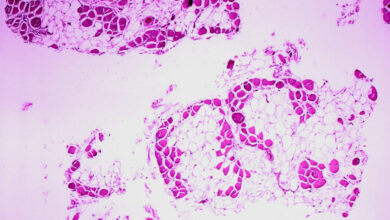Feelings of frailty can set in as early as age 40

Frailty is often associated with old age, but new research suggests that signs of frailty can emerge as early as in people in their 40s. A study conducted by Flinders University’s Caring Futures Institute revealed that feelings of loneliness, a negative attitude towards aging, and feeling older than one’s actual age are all linked to early stages of frailty.
Lead author of the study, Tom Brennan, emphasized the importance of identifying these psychological and behavioral warning signs early on to prevent the progression of frailty later in life. The research highlighted that frailty is not just a condition that affects the elderly, but can also impact individuals in their 40s, 50s, and 60s.
Frailty is a medical condition characterized by reduced strength, energy, and the ability to recover from illness. The study focused on pre-frail individuals, a transitional stage before frailty sets in. The analysis involved 321 Australian adults aged 40 and over, with 60% classified as pre-frail, 35% as non-frail, and 5% as frail.
Participants completed surveys that assessed their frailty status, physical activity, chronic conditions, quality of life, loneliness, social isolation, and perspectives on aging. The results showed that both pre-frail and frail individuals were more likely to report feelings of loneliness and negative attitudes towards aging compared to non-frail participants.
Loneliness was identified as a strong predictor of pre-frailty, indicating that social isolation plays a crucial role in overall resilience. The study also found that individuals with pre-frailty often felt older than their actual age, even when their physical health markers were within expected ranges.
The authors recommended that future strategies to prevent frailty should incorporate psychosocial screening tools and support mechanisms for maintaining social engagement and a positive self-view of aging. By addressing these early warning signs, communities and healthcare providers can implement targeted interventions to help individuals stay healthier for longer and improve their quality of life as they age.
The study underscores the importance of aging well by fostering resilience physically, mentally, and socially. Recognizing and addressing these early signs of frailty can have a significant impact on individuals’ overall well-being and quality of life. The research provides valuable insights for developing effective interventions to support healthy aging and reduce healthcare costs as the population ages.
In conclusion, the study sheds light on the early warning signs of frailty and emphasizes the significance of adopting a positive attitude towards aging. By starting early and promoting healthy aging practices, individuals can enhance their resilience and well-being as they grow older. The findings underscore the importance of addressing psychological and behavioral factors in promoting healthy aging and preventing frailty.





